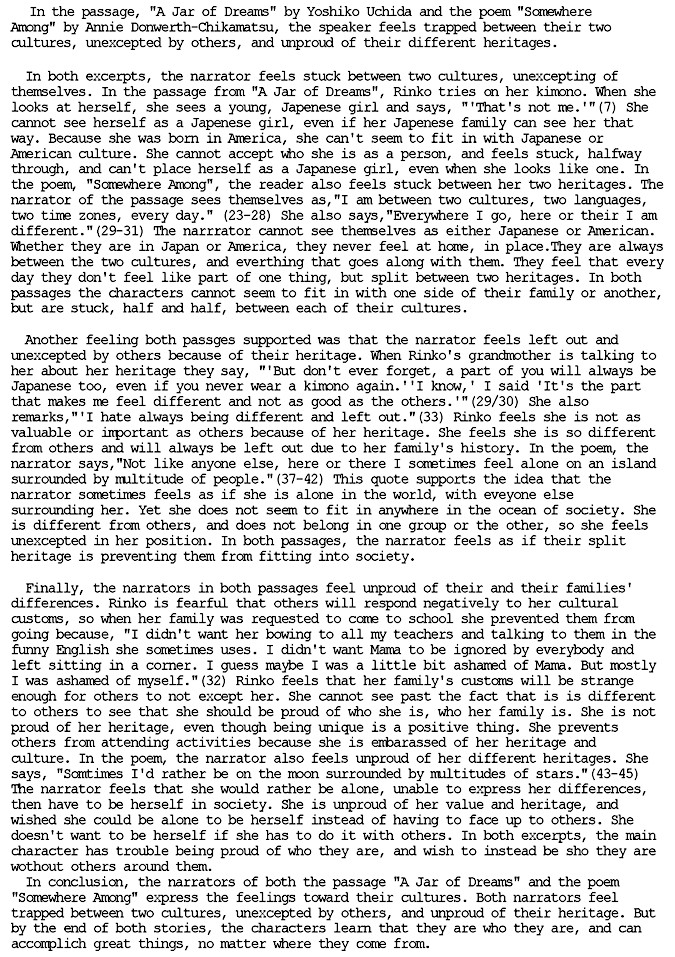2018 MCAS
Grade 6 English Language Arts
Question 24
Idea Development - Score Point 5
The essay fully develops the central idea of how Rinko in A Jar of Dreams and the speaker in Somewhere Among feel about their heritage. Relevant selection of evidence is used to support the argument that the narrator in the passage and the speaker in the poem both feel "trapped between their two cultures, [unaccepted] by others, and unproud of their different heritages." The organization of relevant and specific details is skilled, using evidence from the passage and the poem. Details from the passage and the poem are integrated into each of the three main points, contributing to the overall cohesiveness of the essay. The first body paragraph, for example, explains how the narrators [the narrator and the speaker] feel stuck between two cultures and cannot see themselves as either Japanese or American: "Rinko tries on her kimono. When she looks at herself, she sees a young, Japanese girl and says, 'That's not me.'" In the poem, the speaker sees herself as "'between two cultures, two languages, two time zones, every day.'" The essay emphasizes Rinko's and the speaker's similar feelings about their heritage through careful development of details and a rich expression of ideas, demonstrating a full awareness of the task and mode.
Standard English Conventions - Score Point 3
The essay demonstrates consistent control of Standard English conventions over complex and varied sentences. For example, "Rinko is fearful that others will respond negatively to her cultural customs, so when her family was requested to come to school she prevented them from going because, 'I didn't want her bowing to all my teachers and talking to them in the funny English she sometimes uses.'" Notably, proper punctuation of text-based evidence is consistent throughout, and the few minor errors do not detract from meaning.

[ 5 Points |
5 Points |
4 Points |
3 Points |
2 Points |
1 Point |
0 Points]
